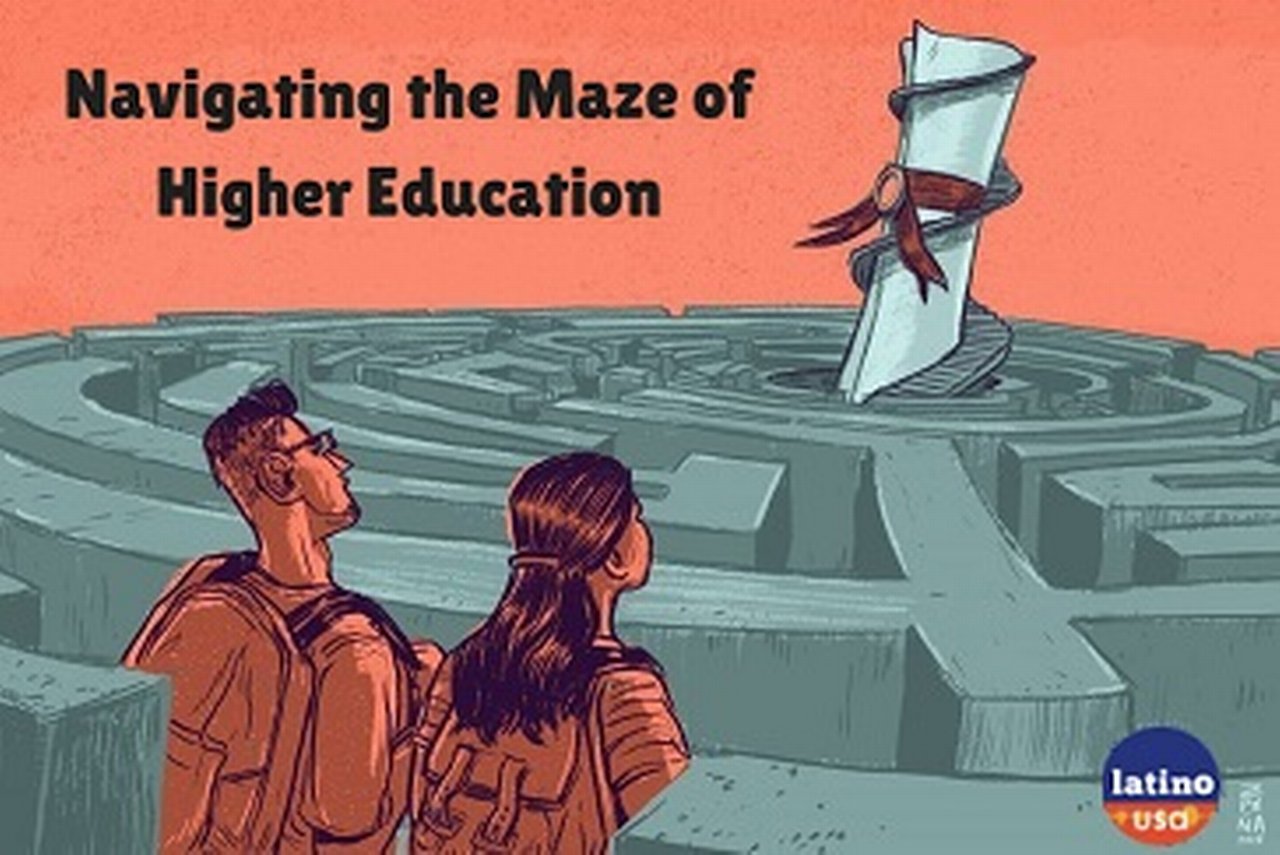Research and reporting spotlights issues facing Hispanic/Latinx youth
Partnership engages communities and policymakers on issues facing the nation’s fastest-growing youth population.
In the past decade, notable changes in school enrollment, employment, and demographics have impacted Hispanic/Latinx populations across the United States. College enrollment has rapidly increased—yet students are leaving without a degree at higher rates than the national average. In the workforce, macroeconomic trends have resulted in a shift in the types of jobs held by many young individuals, with middle-class jobs in manufacturing and related fields replaced by lower-paying work in the service industries. Importantly, such trends present new challenges that vary between subgroups of Hispanic/Latinx nationalities.
To deepen public awareness of these issues, Deutsche Bank Americas Foundation commissioned the Futuro Media Group to produce a three-part audio series and several articles—based on Community Service Society’s (CSS) rich, cutting-edge data—for NPR’s award-winning station Latino USA. Airing on 190 stations and online, the stories served to convey and humanize these important trends, which have implications for the economic stability and mobility of millions of families.
Among the findings of this research is that many Hispanic/Latinx college students struggle to pay expenses while working towards a degree. While state funding decreases, only 19% of young adults earn more than $15 an hour, resulting in financial strain that impacts overall mental well-being and academic performance, and is a driving force behind the rising college non-completion rate.
Today, 65% of jobs require a college degree. For many Hispanic/Latinx individuals without a degree, the rise in warehouse jobs presents an attractive alternative to lower-paying service work. Though some warehouse workers receive better pay and working conditions, CSS and Futuro find that the roles are increasingly filled through third-party temp agencies. As a result, employees receive lower wages and experience higher turnover, which makes organizing for better working conditions more difficult.
Other key findings from the research include: Hispanic/Latinx communities with mixed income households encourage college enrollment; Career and Technical (CTE) high school programs which offer work-based learning activities, such as internship and career exploration programs, help students to make informed career choices and complete college; and, programs on college campuses which encourage more active learning for STEM courses, raise awareness of mental health services, and provide emergency loans for graduating seniors help Hispanic/Latinx students reach graduation.
This research and reporting partnership expanded upon CSR Americas’ Anchoring Achievement in Mexican Communities. This signature, three-year Born to Be initiative focused on improving educational and economic outcomes for Mexican and Mexican-American youth and families in NYC.
To learn more about Anchoring Achievement, click here.
To explore Futuro Media Group’s three-part audio series and articles on Latino USA, click here.

Image courtesy of Latino USA

